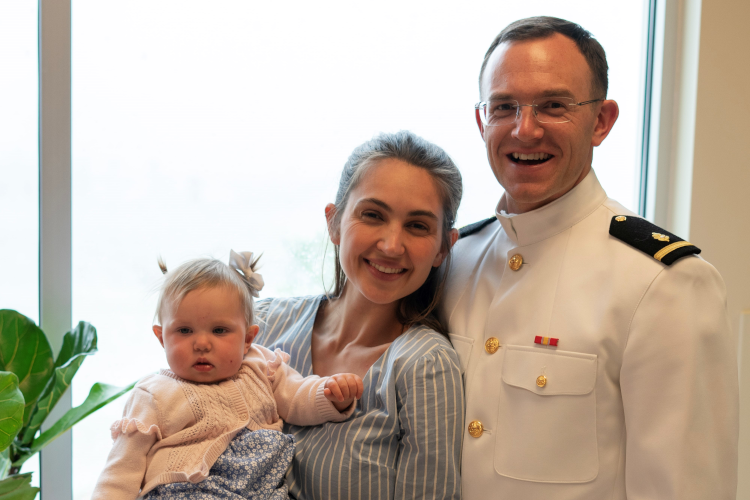- Home
-
About
 Fidelity & Excellence
Fidelity & ExcellenceThomas Aquinas College is unique among American colleges and universities, offering a faithfully Catholic education comprised entirely of the Great Books and classroom discussions.
-
A Liberating Education
 Truth Matters
Truth MattersTruth, and nothing less, sets men free; and because truth is both natural and supernatural, the College’s curriculum aims at both natural and divine wisdom.
-
A Catholic Life
 Under the Light of Faith
Under the Light of FaithThe intellectual tradition and moral teachings of the Catholic Church infuse the whole life of Thomas Aquinas College, illuminating the curriculum and the community alike.
-
Admission & Aid
 Is TAC Right for You?
Is TAC Right for You?Do you enjoy grappling with complex questions? Are you willing to engage in discussions about difficult concepts, with the truth as your ultimate goal?
-
Students & Parents
 Mind, Body & Spirit
Mind, Body & SpiritThere is always something to do at TAC — something worthwhile, something fulfilling, and something geared toward ever-greater spiritual and intellectual growth.
-
Alumni & Careers
 What Can You Do with a Liberal Education?
What Can You Do with a Liberal Education?Nothing speaks more to the versatility of the College’s academic program than the good that our alumni are doing throughout the Church and the world.
- Search
- Giving
Naval Physician: Dr. Dave Langley (’15)

Dr. Dave Langley (’15) is on the last leg of the long journey to becoming a full-fledged physician, working through his residency requirements at Florida State University in Sarasota.
He began his journey to staffing the emergency room as a very young boy reading All Creatures Great and Small, a series of books by a British veterinary surgeon, but it was in high school that he made his greatest strides in that direction — thanks to a spy thriller. “I was struck by a book by Tom Clancy called Executive Orders, in which Ebola gets aerosolized and then weaponized,” Dr. Langley laughs. “It certainly inspired me to look into medicine.” That interest persisted through his time at Thomas Aquinas College and in the years after graduating in 2015, which he devoted to discernment and additional study.
“My grandfather was a physician, and medicine had been in the back of my mind, so I tried to tackle a few science credits prior to going to TAC,” he says. “I had done organic chemistry because of Executive Orders, and I took care of a few other pre-reqs. Post-graduation, I had to take two extra classes in biochemistry and molecular biology.” Dr. Langley at last entered medical school at Rocky Vista University in Denver, Colorado, in 2018 on a Naval commission. He graduated in 2022 and moved thereafter to Sarasota to begin his residency.
“Humans are fearfully and wonderfully made. There’s an order in nature, and looking for that order, while understanding your limitations, is not only good for the patient, but helpful for a doctor on a psychological level.”
As a medical student, and now as he prepares to specialize in emergency medicine, Dr. Langley has certainly found his TAC formation an asset. In particular, his grounding in philosophy provides an essential check against temptations to overconfidence. “I’ve realized more and more that there’s a hierarchy in the sciences,” he says. “We need to have a good understanding of where medicine falls in the arts and sciences; there’s a lot of uncertainty in it. In short, humans are fearfully and wonderfully made. There’s an order in nature, and looking for that order, while understanding your limitations, is not only good for the patient, but helpful for a doctor on a psychological level.”
But the College’s influence has been practical as well as speculative. Dr. Langley’s experience with the Discussion Method “is helpful when I’m speaking to other doctors,” he observes. He and professional peers must often collaborate to analyze a patient’s particular situation, a process which can sometimes echo classroom discussions about this or that point in a difficult text. “I may call the intensivist — the critical care doctor — and make an argument to him for why a patient should be in the ICU, as opposed to just going to a medical floor,” he explains. Thanks to his background, Dr. Langley feels more at ease in such scenarios. “In fact, I look forward to them!”
With the end of his journey toward medicine in sight, he looks behind him and hopes to see more College graduates following a similar path. “I would like to help other alumni,” Dr. Langley says. “If they ever have any questions, I’m always happy to help them gain confidence in their abilities and to get to where they want to be.”

